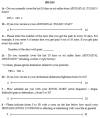Effect of Dewaxed Coffee on Gastroesophageal Symptoms in Patients with GERD: A Randomized Pilot Study
- PMID: 35745239
- PMCID: PMC9231412
- DOI: 10.3390/nu14122510
Effect of Dewaxed Coffee on Gastroesophageal Symptoms in Patients with GERD: A Randomized Pilot Study
Abstract
Gastroesophageal Reflux Disease (GERD) is multifactorial pathogenesis characterized by the abnormal reflux of stomach contents into the esophagus. Symptoms are worse after the ingestion of certain foods, such as coffee. Hence, a randomized pilot study conducted on 40 Italian subjects was assessed to verify the effect of standard (SC) and dewaxed coffee (DC) consumption on gastroesophageal reflux symptoms and quality of life in patients with gastrointestinal diseases. The assessment of patient diaries highlighted a significant percentage reduction of symptoms frequency when consuming DC and a significant increase in both heartburn-free and regurgitation-free days. Consequentially, patients had a significant increase of antacid-free days during the DC assumption. Moreover, the polyphenolic profile of coffee pods was ascertained through UHPLC-Q-Orbitrap HRMS analysis. Chlorogenic acids (CGAs) were the most abundant investigated compounds with a concentration level ranging between 7.316 (DC) and 6.721 mg/g (SC). Apart from CGAs, caffeine was quantified at a concentration level of 5.691 mg/g and 11.091 for DC and SC, respectively. While still preliminary, data obtained from the present pilot study provide promising evidence for the efficacy of DC consumption in patients with GERD. Therefore, this treatment might represent a feasible way to make coffee more digestible and better tolerated.
Keywords: C-5-HT; UHPLC Q-Orbitrap HRMS; chlorogenic acids; dewaxed coffee; gastroesophageal reflux disease.
Conflict of interest statement
The authors declare no conflict of interest.
Figures








References
-
- FAO Food Balance Sheet. 2019. [(accessed on 8 April 2022)]. Available online: https://www.fao.org/faostat/en/#data/FBS.
-
- Castaldo L., Narváez A., Izzo L., Graziani G., Ritieni A. In vitro bioaccessibility and antioxidant activity of coffee silverskin polyphenolic extract and characterization of bioactive compounds using UHPLC-Q-Orbitrap HRMS. Molecules. 2020;25:2132. doi: 10.3390/molecules25092132. - DOI - PMC - PubMed
Publication types
MeSH terms
Substances
LinkOut - more resources
Full Text Sources
Medical

